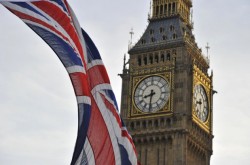 The Bahamas is among the group of former British colonies whose classified colonial crime record files were opened in April.
The Bahamas is among the group of former British colonies whose classified colonial crime record files were opened in April.
The records are for the 37 various countries across the world whose archives were collected in the 1960s, strictly classified, and shipped to the UK.
The countries whose records began to be available from April are: Aden (and protectorates), Anguilla, Bahamas, Basutoland, Bechuanaland, British Indian Ocean Territory, Brunei, Cameroons, Ceylon, Cyprus, Fiji, Gambia, Gilbert and Ellice Islands Colony, Gold Coast, Jamaica, Kenya, Malaya, Malta, Mauritius, New Hebrides, Nigeria, Northern Rhodesia, Nyasaland, Palestine, Sarawak, Seychelles, Sierra Leone, Singapore, Solomon Islands, Swaziland, Tanganyika, Trinidad and Tobago, Turks and Caicos, Uganda, West Indies Federation, Western Pacific High Commission and Zanzibar.
According to Zimbabwe eye, an online newspaper, Zimbabwe, previously known as Southern Rhodesia, led by the rebel government of Ian Smith, is excluded from the list.
The UK guardian is quoted as having reported that thousands of the documents relating to Zimbabwe detailed some of the most shameful acts and crimes committed during the final years of the British empire and were systematically destroyed to prevent them falling into the hands of post-independence governments. It is also said the Foreign and Commonwealth Office holds around 8 800 files, according to other reports.
“Those papers that survived the purge were flown discreetly to Britain where they were hidden for 50 years in a secret Foreign Office archive, beyond the reach of historians and members of the public, and in breach of legal obligations for them to be transferred into the public domain,” the paper wrote.
The records received the spotlight when Kenyan victims of the Mau Mau conflict successfully took the British government to court for crimes committed in the 1960s.


